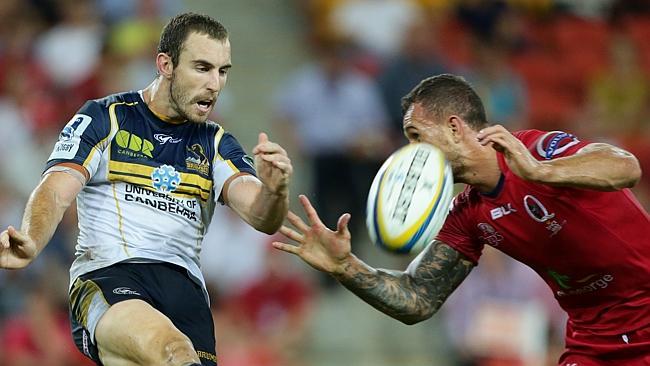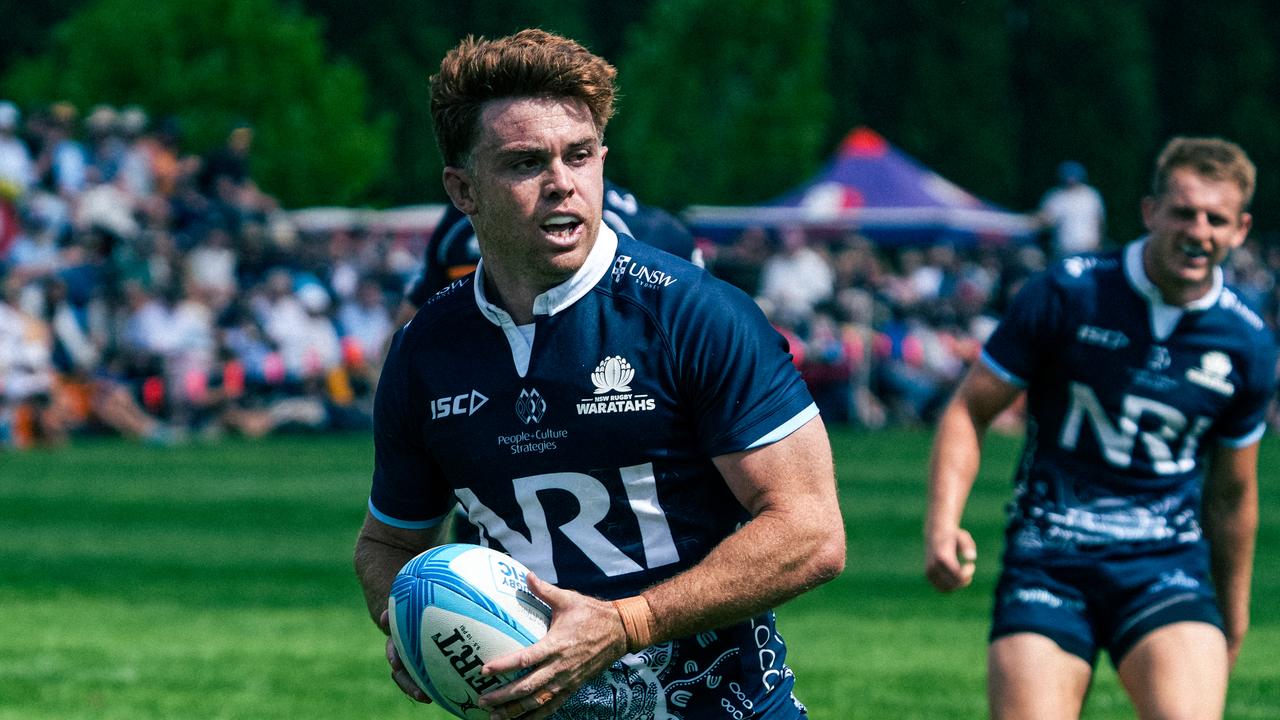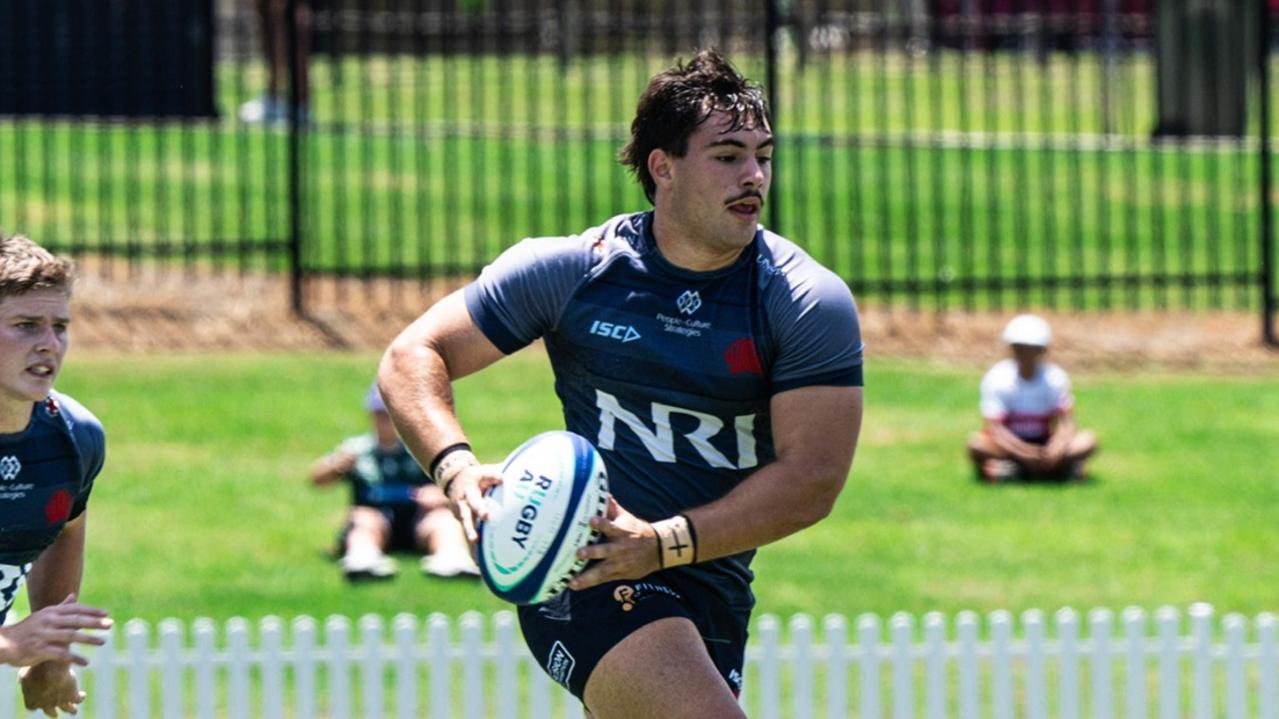ARU confident new broadcast deal for Super Rugby expansion will help clubs financially
AUSTRALIA’S rugby bosses have gambled the financial future of the code on landing a bigger broadcast deal after agreeing to Super Rugby expansion.

Clubs
Don't miss out on the headlines from Clubs. Followed categories will be added to My News.
AUSTRALIA’S rugby bosses have gambled the financial future of the code on landing a bigger broadcast deal after agreeing to Super Rugby expansion.
Despite predictions of a feisty meeting with Bill Pulver, the five Super Rugby CEOs ultimately lined up behind the ARU boss and committed Australia to joining the four-conference, 18-team competition from 2016.
It had a whiff of turkeys voting for Christmas given the new structure will potentially make it harder for Australian teams to win the competition, and see Super Rugby franchises lose one valuable home derby game each year.
The ARU are banking heavily on a much-improved next broadcast deal, however, and hope the hoped the extra millions of TV money can stop the states going bust.
As revealed in the Daily Telegraph last month, Pulver is targeting an increase in the ARU’s current TV money from $28 a year to $40 million, and a mix of pay-TV and free-to-air coverage.
“Compensation (for the lost game) needs to come via a broadcasting agreement that achieves sufficient revenue to distribute funds to the Super Rugby clubs that will satisfy their financial needs,” Pulver said.
“We have done some modelling within the ARU and within SANZAR about likely outcomes but the reality is until you complete that negotiation with the broadcasters you don’t know what that final outcome will be.
“There is a feeling of comfort within the ARU and the five Super Rugby franchises that this model has the real potential to create a very positive financial outcome for us.”
It is understood a $12 million gain would cover the $10 million financial hole the ARU annually encounters due to unprofitable Super franchises. But if the size of that hole gets any bigger across the five-year deal, the ARU’s financial worries would re-emerge.
“All I can tell you at this point is I am very confident we will get the right (broadcast) outcome because of the type of competition structure we have put in place, and the fact there is there is nice amount of competitive tension brewing inside the broadcast environment,” Pulver said.
RUPA boss Greg Harris, who has opposed Australia’s entry into Supersize Rugby, said there were still major question marks.
“They’ve made a decision, we acknowledge that and we can’t reverse it, but we still have reservations about whether it will stack up financially at the end of the day. As Pericles said: “Time is the wisest counsel of all”.”
The addition of Argentina, a sixth South African team and an to-be-determined 18th team — potentially from Asia, North America or Europe — will see drastic changes to the tournament.
Australia and New Zealand will share a “block”; with Aussie and Kiwi teams playing two less local derbies (8 to 6), and Australia playing all five Kiwi teams instead of the current four. Pulver pitched more Kiwi foes as compensation for Aussie teams but in reality it is seen as a win for New Zealand, who view Australian sides as easier rivals than their own.
The African block will be divided into two conferences of four sides, with Argentina and the TBA team in one each. To limit travel, Australasian teams will only play sides from one of the two conferences each year, and swap the next.
The finals will expand to eight teams, with the four conference winners qualifying and four next highest wildcards — but with three spots for Australasia and one for the Africans.
Pulver nominated this is a significant win for Australia in negotiations and said “you actually create an argument this is a very positive outcome” for our teams to make finals.
But with strong South African sides likely to dominate pools featuring weak rivals, two Africans seem certain to host finals in week against those wildcard qualifiers from the east. In the 18-year history of Super Rugby, only three Aus/NZ sides have won playoffs in South Africa.
Pulver said the problem was based on an “assumption” South African side will top both conferences.
“It could be Argentina or a team from another country, it is not automatically going to be a South African finalist,” he said.
Pulver said Australia’s preference for the 18th side would be in Asia (with Japan, Singapore and Hong Kong said to be interested), but shrugged off the apparent logistical issues involved. The ARU would resist a bid by South Africa to add another side, Pulver said.


